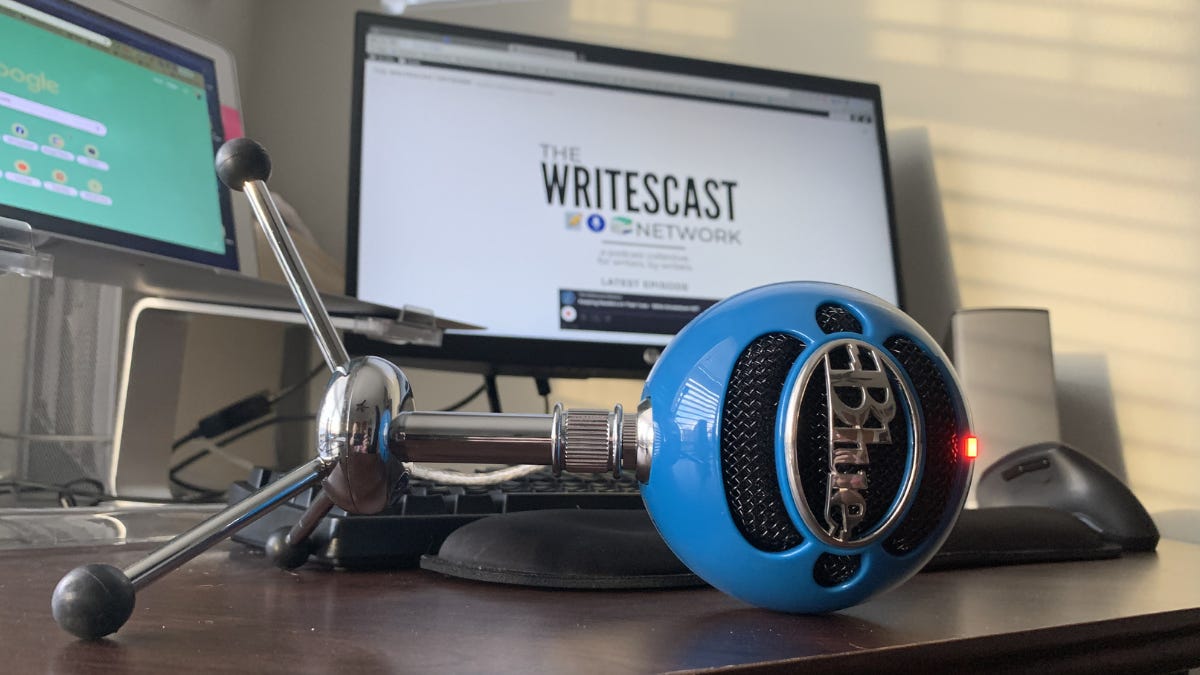Why Skill Triumphs Over Passion: The Craftsman Mindset
"Ask not what your career can do for you. Ask what you can do for your career."
This is part two of three in the passionate craftsman series. You can find the full series here.
Why Skill Triumphs Over Passion: The Craftsman Mindset
“Ask not what your career can do for you. Ask what you can do for your career.”
This, in a nod to the Kennedy inaugural address, is one way to distill the craftsman mindset. Rather than expecting to follow one's passions to the ideal job—which focuses on the value one's career can offer them—those who adopt the craftsman mindset instead sharpen their craft through deliberate practice in order to accumulate career capital, which they can later exchange for greater autonomy and fulfillment.
In part two of this multi-part series, we'll consider examples of the craftsman mindset in action before examining its results and identifying the gaps it leaves behind.
Craftsman at Work
In So Good They Can't Ignore You, author Cal Newport lays bare the craftsman mindset and how it better aligns with what actually brings people joy in their careers, namely autonomy, competence, and relatedness.
If these terms seem familiar, you're likely already acquainted with self-determination theory, which posits that autonomy, competence, and relatedness are the psychological needs that “underlie growth and development,” as the University of Rochester Medical Center describes it.
Autonomy, one might point out, is precisely what those who pursue the passion hypothesis garner for themselves. After all, if one follows their passion, will they not find themselves with a career that empowers them to do what they will, when they will, as they see fit?
This was not my experience as a full-time author, nor is it the experience of thousands of entrepreneurs whose work lives have long since eclipsed whatever might have remained of their personal lives—none of which is to mention the lack of autonomy they might experience in their work itself.
For example, though I had cultivated—or at least believe I cultivated—a great depth and breadth of competence in the realm of creative writing and, in doing so, tapped into a strong sense of relatedness via the expansive and engaged writing community, I had to take pains to ensure I had time to focus on my own writing day to day.
Between an obligation to social media algorithms (platform, platform, platform), an always-on-time production schedule for the Writescast Network, and my freelance editing clients, there was always someone who depended on me to deliver for them. In time, these pressures consumed me as they have so many others—including those detailed in the early pages of So Good They Can't Ignore You.
For my part, I felt the only way to reclaim a sense of self was to discontinue my editing services and shut down the Writescast Network. In other words, I had to trade relatedness and public-facing demonstrations of competence to reclaim the autonomy I had lost in my adherence to the passion mindset. It's only thereafter that I used this rediscovered autonomy to tactically invest in upskilling alongside others who were looking to do the same.

From Craft and Passion to Craft and Craft Alone: A Risky Proposition
Having successfully followed my passion to a career in publishing, it felt dangerous to abandon that which vocational awe had led me to believe was an extraordinary privilege. It took little reflection to recognize that casting that privilege aside to enter a highly-competitive, ever-changing field did not always seem like the best proposition.
After all, I'd made a years-long investment in upskilling in the world of all things writerly, which, in its own way, suggests that the craftsman mindset isn't all it's cracked up to be. Simply put, an investment in sharpening my craft in one field had once led me astray; why did I believe I would find a better balance in a field not my own?
There are a couple of reasons for this: differences between the fields themselves and my own poor investments of career capital.
Fields of Play, by Which I Mean Work
Working in tech distinguishes itself from publishing in a number of ways, one of which is along objective-subjective lines. By this, I mean there is almost always something subjective when it comes to evaluating the outputs of authorship (read: books, short stories, query letters, etc.).
Contrast this with working as a software engineer, where, at the end of the day, your code either satisfies acceptance criteria or it doesn't. If your code works and you're on a tight delivery schedule, congratulations! Let's merge it and begin the delivery cycle anew. If you're not up against a deadline, yeehaw. You've got plenty of time to take that already-working code and fine-tune it further for future-proofing and performance.
These contrasts are of course simplifications. One could make the argument that there is a sense of the objective that emerges when evaluating a manuscript. For example, imagine someone pitching their work as a capital-R romance when it's clearly contemporary fiction with a romantic element. This does happen, and there are objective (or close to objective) criteria for defining the lines between genres.
And in the world of software, there are clearly countless ways to engineer one's way to solutions. When those solutions are later reviewed by one's peers prior to acceptance into the greater codebase, subjective matters of style and approach can arise. However, everything that undergirds one's code is ultimately ones and zeroes the deeper down one drills, so the arguments to be made in favor of or against some approaches have their bases in the immutable.
The takeaway here is that engineering tends toward the objective; the same cannot be said for publishing. As a result of this difference, as one upskills with respect to the former, there is a greater likelihood of correlation between skill and success.
The appeal of this, to me, made taking the risk of starting from close-to-zero in a new field more than worth it. There was always the chance that it wouldn't work out, but with enough dedicated study and self-advocacy, I could see a way forward in engineering in ways that were far more uncertain in publishing.
Bad Bet
I'd be remiss to not count my own poor investments as among the contributing factors to my demise as an individual who worked in publishing full time. When I signed my first publishing contracts and left my job in regulatory affairs to focus on writing, I suddenly found myself facing a dilemma I had not yet encountered: I had to—or felt I had to—justify my choice to abandon my career by making money from writing-related work as soon as possible.
This is a natural fear to have had, but I went about addressing it in ways that weren't in alignment with my long-term goals. The quickest way to generate income was to trade in the career capital I'd been accumulating (industry and craft knowledge) and expand my client base as an editor. This required me to increase my reach as a podcaster, which required me to record more episodes, which required me to spend more time on social media to promote them, all of which was, again, in service of expanding a client base that would require more of my time.
The end result of this cycle was one that pressed me to spend more and more time away from the very thing I'd left outside-the-home-employment to do: write. In other words, I'd made a bad bet with my career capital; rather than focusing exclusively on my own work in order to increase the likelihood of sustainable success, I surrendered nearly all of the autonomy I had earned for myself in those years of honing my craft as a writer and establishing myself as a trusted voice in the writing community.
The cycle that underlies this series of events is discussed in So Good They Can't Ignore You. It is also, affirmingly, not an unusual circumstance for those who adopt the craftsman mindset to find themselves in. When one has become sufficiently skilled as to attract the attention of others, the advice the author gives is to embrace opportunities that give you more autonomy and reject those that do not.
It should go without saying that I really wish I'd read this book years ago.
Knowing what I know now—and given the industry differences described above—my belief that I could find a better balance in a field not previously my own should be much more understandable.
Autonomy and Control: Lessons Learned and Applied in Engineering
On that notion of embracing that which grants one more control, though: I did lose some autonomy by returning to more traditional employment. I'm beholden to direction of the organization and my department, yes, but this was to be expected. The career capital I'd cultivated in publishing was not, unsurprisingly, wholly transferable to this new-to-me field of software engineering.
But, in the three years since I made this career transition, I've already found ways to accumulate industry-specific career capital for myself, which has translated to greater autonomy and, as self-determination theory would have it, an increased sense of job satisfaction.
It may seem that I've just contradicted myself. How can I be beholden to an organization's mission while still having opportunities to pursue that which appeals to me while on the job?
Because I make time to do the latter.
Every Friday afternoon, I have my calendar blocked off with a big red do-not-disturb meeting that reads Exploration Afternoon. During that time, I work on pet projects whose purposes range from making me or my team more efficient to building apps that ensure customer support teams are able to resolve client inquiries as quickly as possible.
Despite the success these Exploration Afternoons have brought me—and how they've helped me further my technical skills—I know I'm not, nor do I believe I will ever become, the kind of engineer for whom reading textbooks about Typescript design patterns is an ideal weekend. Those engineers have a unique marriage of craft and passion for this specific field, and it's these individuals to whom I can turn when highly specialized knowledge is required.
At the same time, it's also these folks one must compete with for promotions.
This could engender a sense of embitterment or fear: if my relative lack of passion for the close-to-the-metal technical aspects of my day job is unlikely to position me for long-term success, have I perhaps chosen the wrong career path? This is where the craftsman mindset comes up short. I'll argue that the craftsman hypothesis, when taken to its extreme, embraces the notion that only most highly skilled individuals in a field can ever expect to succeed in that space.
As we've explored here, skill is deeply important, yes, but one's passions need not be aligned with an industry's stereotypes to enjoy success. In fact, as I'll argue in the next post in this series, bringing one's unique, external passions to a position that would not ordinarily emphasize them can create an ideal environment to stand out from the crowd. In the long run, this helps one further develop a sense of autonomy, feel a sense of relatedness, and demonstrate one's competence all at once.
And wouldn't acolytes of self-determination theory take solace in that? I know I do, and I'm hopeful you will as well after reading part three in this series.





